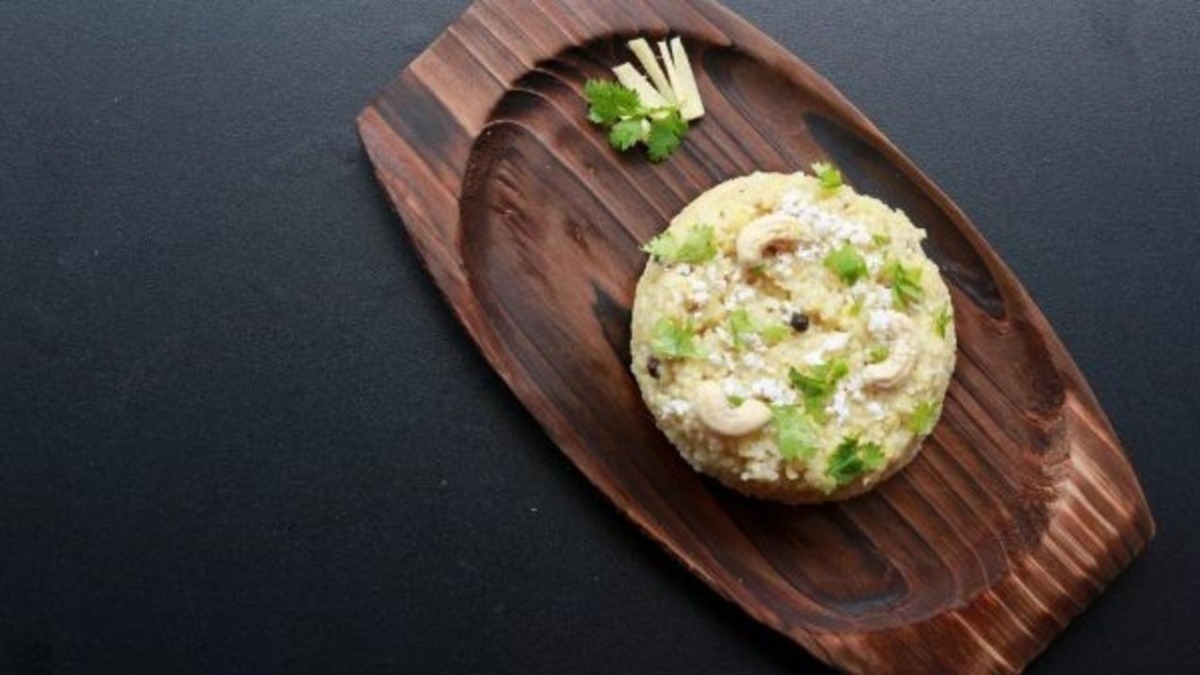Needless to say, khara or ven pongal is a staple during Makar Sankranti or ‘Pongal’, as the festival as called in Tamil Nadu.
Pongal is a much loved dish. Perhaps because of the flavours from warm aromatic spices and feeling of comfort with every mouthful.
Revathy Rabindran loves cooking traditional Indian plant-based dishes for her family. She is a storehouse of knowledge about how to get the perfect flavour and texture for any traditional Indian dish. Discover her journey and try Brown Rice Ven Pongal today.
It is popular in many parts of India and known by different names. Khichdi in North India, Ven Pongal in Tamil Nadu, Khara Pongal in Karnataka and Katte Pongali in Andhra Pradesh. For all its different avatars, the same set of basic ingredients are used—rice and split yellow lentil or moong dal.
We show you how to make this popular dish healthier and tastier! We use brown rice with lentil since wholegrain rice is healthier than white rice.
Needless to say, khara or ven pongal is a staple during Makar Sankranti or ‘Pongal’, as the festival as called in Tamil Nadu.
Try out this one-pot super healthy dish with some tangy coconut chutney!
-----
- Plant-based Nutrition,
- North Indian Cooking,
- South Indian Cooking,
- Sugar-free Baking and more.
Link to order native plants & gardening support in Bangalore: https://www.urbanmali.com
Disclaimer:
Video & Other Content is not intended to be a substitute for professional medical advice, diagnosis, or treatment. Please consult a Physician.

Whole Food Plant Based Ven Pongal Recipe
Course: Course 3 (Grain Dishes) at Lunch & Dinner Meals; Pongal Recipe; Millet Recipe
Cuisine: Tamil Recipe from South India
Prep Time: 10 minutes
Passive Time: 30 minutes
Cook Time 30 minutes
Servings: 4 people
INGREDIENTS
- Brown Rice 1/2 cup
- Moong Dal 1/4 cup
- Jeera / Cumin Seeds 1 tsp
- Hing / Perunkaayam / Asafoetida 1/4 tsp
- Black Pepper 1 tsp
- Ginger 1/2 inch piece, peeled and grated or minced
- Curry Leaves few
- Green Chili 1, slit
- Cashew Nuts 1/4 cup
- Salt 1/2 tsp or Miso Paste 1/2 tbsp
INSTRUCTIONS
- Lightly roast cashew nuts. Do not brown.
- Lightly roast brown rice until mildly aromatic.
- Lightly roast moong dal until warm to touch.
- Mix all ingredients and add water (4 times as much as rice + dal - in this original recipe, rice+dal quantity is 3/4 cup. So, we may add 3 cups of water) and pressure cook. Make sure you leave it on the stove for 3 whistles MORE than usual so it gets cooked soft.
- Once cooked, release pressure after 10 minutes. For best health benefit, add salt or miso paste after cooking. Allow to cool and serve fresh with Gothsu, Sambar, or Chutney!
Plant Based Chef Pro Tips for Best Ven Pongal Recipe
- "Pongal is only pongal when you add copious amounts of ghee", you may hear your relatives saying. If you want them to feel like you have added ghee, mix in some almond butter and ground coconut paste to mimic ghee flavour.
Nutrition Science Highlights for WFPB Ven Pongal Recipe
- Why Miso Paste? Miso paste is fermented & salted soya bean paste. American Heart Association Maximum recommended maximum daily salt intake of 3.75 grams per person to minimise risk of high blood pressure, stomach cancer and chronic kidney disease. In addition to helping us restrict salt intake, replacing salt with miso paste also helps by neutralising the negative effects of salt by soya phytonutrients. You can easily make fresh miso paste at home by mixing 100 grams of cooked soya paste with 10 grams of salt, or 10 tablespoons of cooked soya paste with 1 tablespoon of salt. If making at home, ensure to use immediately, or freeze in batches to use later. Or, simply use 3.75 grams of salt or less per day per person and add 18 to 20 grams (dry weight) of soya beans in any dishes, spread through the day!
- Why whole grains? Whole grains are healthier than refined grains such as white rice, refined flours, maida, rava, etc., as the bran layer is intact, with all its vitamins, minerals, and phytonutrients. Whole grains have been found to be protective against a whole range of chronic diseases, including heart disease, diabetes, and lifestyle-related cancers.
- Why cool grains? When cooked grains are allowed to cool on the counter or in the fridge, the starch crystallises to form resistant starch. This can be eaten by our good gut bacteria and also reduces the glycemic index (the rate at which glucose is absorbed), making the whole grain even healthier. For the same reason, parboiled whole grains can be used as well.
- Why not tadka? Tadka, thaaLippu, oggaraNe. Tempering spices in oil is quintessential to Indian cuisine. This practice may have started as a compromise when whole nuts were unavailable, and indeed, is more common in inland, drier areas where nuts do not grow easily, all year round. You can enjoy the taste and fragrance, though, by just dry roasting the spices you require, without the oil, or even better, mixing spice powders directly into your dish!

